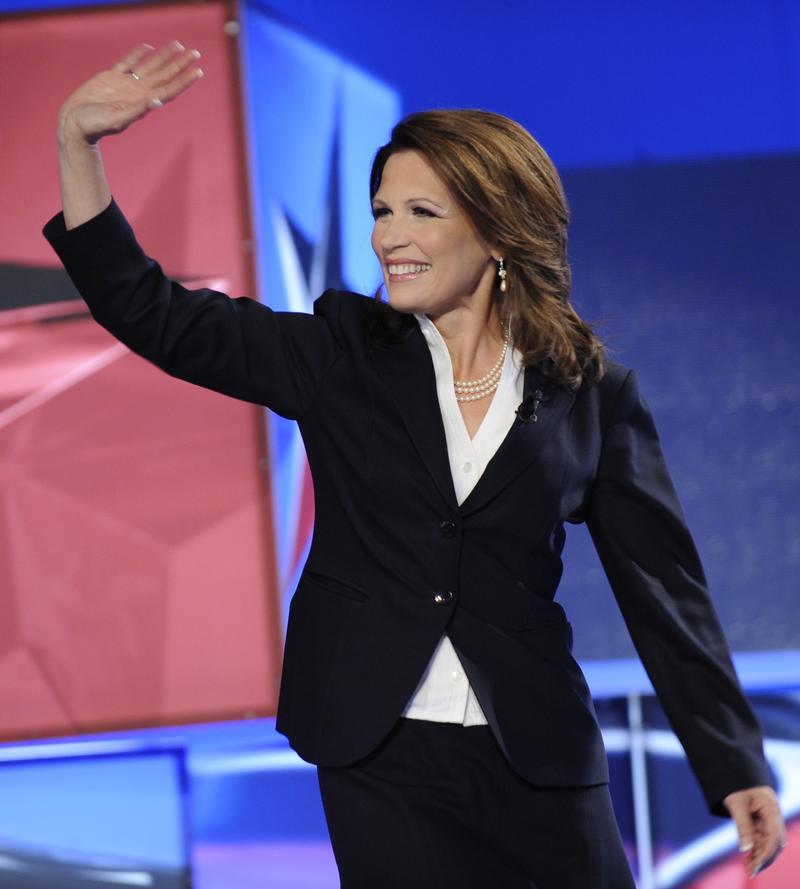
I was in New Hampshire last night for first formal presidential debate and had a chance to talk to many folks the days before the event and afterwards as well.
I found New Hampshire citizens not very engaged for this event. The talk at cafes and among people I know was about the bad weather (overcast and drizzly) and growing traffic as folks from Massachusetts move into the Granite State to escape high taxes. (I myself got stuck in a traffic jamb myself on Route 93 coming north from doing some interviews in Rhode Island that evening!)
Former Gov. Mitt Romney set the tone for the evening asking, “Why isn't the president leading? He isn't leading on balancing our budget, and he isn't leading on jobs. He's failed the American people both in job creation and the scale of government." This overall theme stuck for the rest of the evening: get rid of Obama and his policies.
But the night’s real stand-out was Michelle Bachmann, who took advantage of the debate spotlight to announce she is running for president. She clearly and surprisingly won the debate. Nate Silver wrote in the New York Times, “she performed strongly throughout, exuding confidence, and turning her service in the House of Representatives from a potential liability (in a field that also includes governors and senators) into a strength (by emphasizing her active role in formulating policy on the major issues of the day).” Bachmann was energetic and has a way with words, making some of the other wannabes look limp. Her experience in Congress showed and made her more credible than her critics might want to admit, and complicates things for Sarah Palin.
Herman Cain gave a good show but we only remember a few moments from any candidate’s performance and as Chris Cillizza wrote in the Washington Post, “Cain’s answer on whether he would have a Muslim in his Cabinet was confusing at best and offensive at worst and will be, without question, the memorable moment of the debate for him. And that’s not a good memory.”
Newt Gingrich was the orphan of the debate, largely irrelevant and all we could think of was whether his wife Callista approved and what his 16 departed campaign staffers were saying.
Mitt Romney is polished and that showed. He looked and sounded presidential, focused on the economy and on attacking President Obama. He was clearly one of two winners. As Time's Adam Sorensen characterized it, “Romney’s Monday night victory, then, was one by default. He entered the debate as the front-runner and left in the same position.” I agree. He remains the top dog in the GOP race to the White House.
Ron Paul was, well, Ron Paul. He is interesting but quirky and we know the themes of his libertarian Republicanism by heart so I doubt that he gained much support.
Tim Pawlenty failed to prove that he could pass the test of fire in a national debate. He was not sharp and incisive and he didn’t have the guts to launch at Mitt Romney’s health care program in Massachusetts which he has called “Obamneycare” and which would have proven that he has cojones (as a New Hampshire friend of mine said).
Rick Santorum was not mentioned by any of the analysts I read during or after the debate...so I won’t mention him here either! He and Newt seemed to be the marginal candidates.
I agree with Nate Silver who wrote, “The debate serves mostly to influence elite opinion—including partisan strategists, the news media, local party leaders, major donors and bundlers and the candidates and their staffs. Much less so ordinary voters, who are not yet tuning in.”
But even with that specialized audience, I don't understand why these seven candidates made the debate into largely a GOP lovefest because soon they will need to draw blood from each other. Maybe that will be left up to a future Iowa debate to accomplish!
And Republicans still need to decide if they’ve got a viable field of candidates or whether there is some knight in shining armor still out there who can ride in and slay Obama. Maybe Rick Perry of Texas or Chris Christie of New Jersey or someone who hasn’t even been mentioned—I say Jeb Bush—would be superior to the field now deploying across Iowa, New Hampshire, South Carolina and the rest of the nation.
Steffen Schmidt is professor of political science at Iowa State University, blogs for the Des Moines Register, and is chief political correspondent for Insideriowa.com.